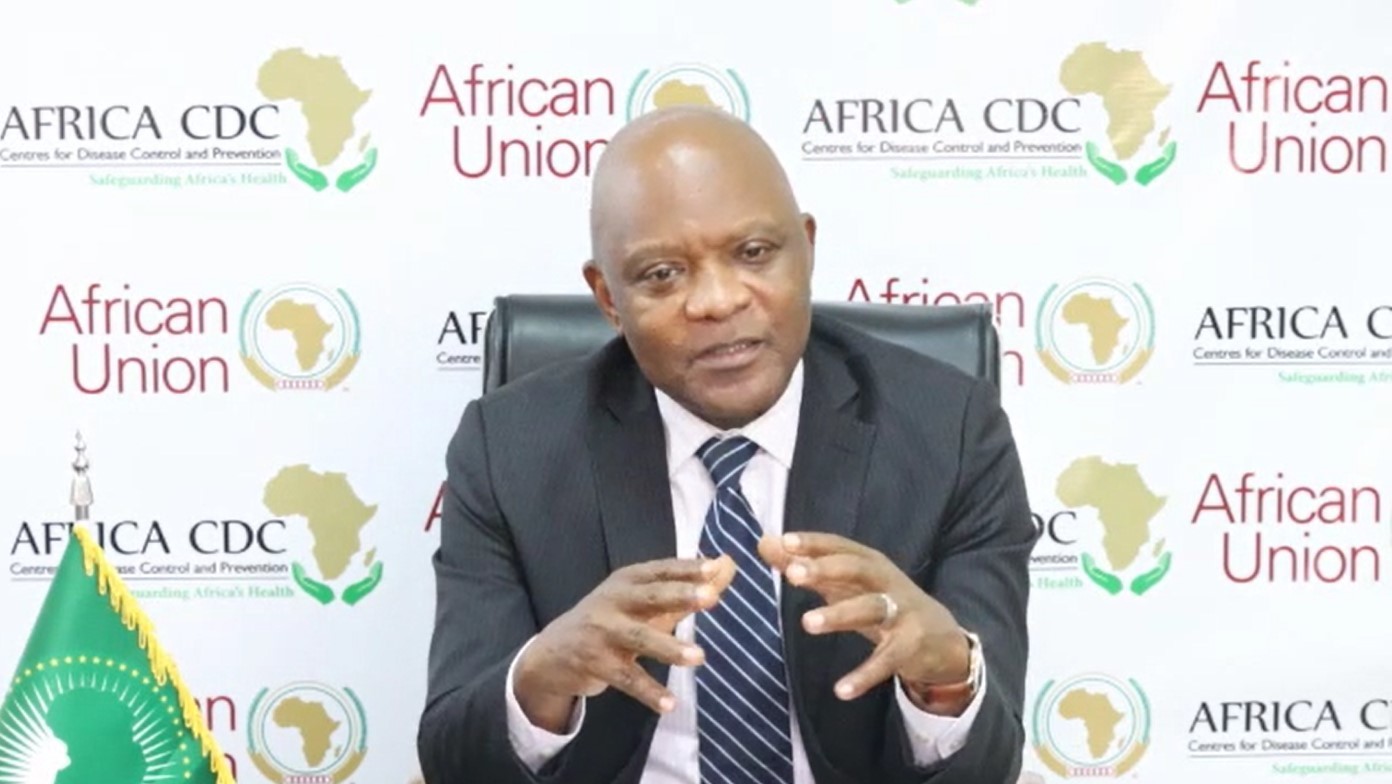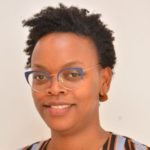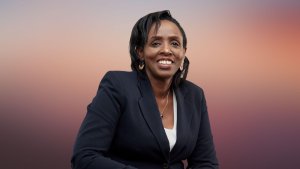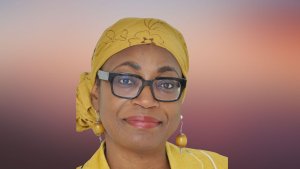An interview with John Nkengasong, Director of Africa CDC, about how a coordinated response to COVID-19 in Africa has proven to be effective
In this interview for INET’s COVID-19 and Africa series, Folashadé Soulé and Camilla Toulmin discuss with Dr. John Nkengasong, Director of Africa CDC, about vaccine manufacturing in Africa, how the regional initiatives led by Africa CDC to address the pandemic and vaccine shortages have proven to be effective and the four key measures required for a new public health paradigm.
John Nkengasong currently serves as Director of the Africa Centres for Disease Control and Prevention, a specialized technical institution of the African Union. In early 2020, he was appointed as one of the WHO Director-General’s Special Envoys on COVID-19 Preparedness and Response. In addition, Dr. Nkengasong was most recently awarded the Bill and Melinda Gates Foundation’s 2020 Global Goalkeeper Award for his contributions to the continental response in fighting the COVID-19 pandemic in Africa.
Africa has been affected by vaccine hoarding and the vaccine roll-out has been slow in several parts of the continent. Africa CDC has spearheaded several innovative initiatives, among which is the African Union’s Africa Vaccine Acquisition Task Team (AVATT). Yet a major reason for the low vaccination rate in Africa is the lack of available supplies: Africa manufactures less than 1% of all vaccines administered on the continent. Several efforts are being made to ramp up production of COVID-19 vaccines on the African continent (with at least twelve COVID-19 production facilities proposed) but how can African countries best scale up local vaccination production for the long term?
Africa has to step back and look at the devastation that COVID has brought to the continent, and of course the whole world, and also recognize that it’s the continent with the fastest-growing population. We are 1.2 billion today and the population is projected to be 2.4 billion by the year 2050. If you look at the demographics, there is a point where Africa takes off while Asian and other countries are flattening out. This has a lot of implications for Africa’s own health security, and vaccines are the best tools that you have in your box to fight infectious diseases. As you rightly said, only 1% of our vaccines are produced on the continent. That means we import 99% which is clearly not sustainable. We have also seen that there is a behavior divide: when the continent is faced with what I call ‘routine vaccines’ which are regularly consumed in this part of the world, such as polio and others, there’s no scramble. We have peace, global peace, and nobody contests that. But when there are vaccines or products where there is scarcity globally, the continent is immediately paying the price for its own inability to produce vaccines and is completely left behind.
People say many fanciful things, speaking from the pulpit at international meetings. No one there says the wrong thing, but the right thing which speaks of solidarity and equitable access is not delivered. This behavior gap between what you say and what you do has to be managed. So, let’s step back to ask: what are some of the things that must be done? It’s very easy to say: “Africa, you have to manufacture your own vaccine! why are you not doing that?“ Let’s look at the vaccines which no one is competing for: the childhood immunization vaccines. The market for these vaccines has been designed so that Gavi, the Global Vaccine Alliance, raises resources from donor countries and foundations, and takes them to India and China, which produce those vaccines and then ship them to Africa. That is the current scheme. Africa cannot produce vaccines if there is no market for the vaccines. We have to start off by saying: how do we shape the market in such a way that Africa can get into that venture, knowing there will be somebody to buy the vaccine. It’s basic economics. Demand and supply. Here we find ourselves in a situation where we ought to build health systems before we need them, rather than when we’ve been hit by COVID-19 and the lessons of the past are playing out. In 1996, HIV Aids drugs were available but it was a global scramble to get them. Africa did not have access to these drugs, and it took 10 years before initiatives like PEPFAR, and the Global Fund came in and shaped the market. Then Africa started having access, but in the meantime, 10 million people had died in Africa. In 2009, the H1N1 swine fever virus arrived, and it was feared to lead to a pandemic. Luckily it didn’t get to the level we are seeing with COVID today. Vaccines for H1N1 only arrived in Africa and other parts of the developing world when the epidemic was over. Here, we have the COVID pandemic which hit the world in 2019. Around February 14, 2020, Africa recorded its first cases. We had no diagnostics, and we had to scramble for whatever we could find. Remember the discussion at that time was access to diagnostics. Everybody talks about vaccines now, but we very quickly forget that we were very vocal about diagnostics when this all started, because Africa had no diagnostic capacity. And now here we are with COVAX and the idea of global cooperation and solidarity around vaccines. Everybody said ‘let’s have COVAX’; we’ll have a global basket of vaccines and if they all are shown to be efficacious, everybody will get it at the same time. But today, the African continent of 1.2 billion people has only 4% of its population fully immunized. What a contrast with other continents! That is the situation.
Where do we go from here? Africa has to take its own health security, its own destiny in its hands, look at the whole vaccine ecosystem and take a coordinated approach. This is very important. If African countries operate in isolation and address it as a matter of pride for each individual country, then collectively we cannot succeed. Vaccine production requires a crude analogy, like manufacturing the Airbus, where many parts are made all over Europe but the final aircraft is produced in France. We are encouraging the continent to follow the Airbus approach, where you look at the entire ecosystem for vaccine manufacturing and then you define it and encourage any country in Africa that is interested to build industries that can supply parts of the production chain. For example, a country can go in and say “we will only be producing lipids for vaccines, or will produce the vials”. I was at the Aspen factory in South Africa where they are doing the “fill and finish” for Johnson & Johnson and I took up the palette of vials and asked “where is this coming from?” They said from China. So, even if you produce the vaccines, but cannot supply the vials, you cannot put it in the arms, right? So, we are calling for an eco-systemic approach that will reverse this tendency of only producing 1%. By the year 2040, we should be able to produce 60% of our vaccines. We had a meeting in April, where Heads of State like Presidents Kagame, Ramaphosa, Tsishekedi, and others confirmed we should start this journey together and, as we speak, we’re finalizing a framework that will guide us to reach at least 60% production in the next 20 to 25 years.
Many have called for the pandemic to be considered as an opportunity to “build back better”, and to improve the capacity to better prevent, detect, and respond to health emergencies. How do you see African governments using the crisis as a way to trigger a new health paradigm in Africa?
I’m happy you talk about a new health paradigm. We are calling it a “new public health order for Africa”. Those who enjoy the status quo think we are preaching another Pan-Africanism. But what we all see is that the continent is late in taking its own security aspirations into its own hands. We are also saying that it is time that Africa begins to do some of those things regionally, for its collective health security, and limits dependence on others - which is what the North wants to see as well, I think. When partners like the UK, France, USA, and China come to me and say: “I want to do a certain thing”, I say “what we are seeing is the spirit of a new public health order, that has to be very pleasing to you because it says that your own bilateral donation is beginning to yield fruits. You can see that your taxpayers’ money is finally going to do something for the continent as a whole, rather than a divided approach.”
We need a new public health order that does four things:
1) Pushes the continent to produce its own pandemic response and health security, commodities, vaccines, diagnostics, and therapeutics. As we speak, you’ll be shocked to know that before COVID hit the continent, there was absolutely no country in Africa that was producing diagnostics of any sort. None. I was also shocked when I reflected on my experience as an HIV expert for the past decades. Before I took this job, I spent 29 years in HIV. The continent conducts about 150 million tests for HIV a year but there’s no company or country in Africa that produces a simple rapid test. A rapid test is a very simple thing to create, which brings jobs, and technology transfer. If we were doing that as a continent, then when COVID came in, we’d have been able to repurpose the technology, the know-how, and the process into producing diagnostics for a new disease. We have to invest in this.
2) Second is having your own national public health institutions, like the China CDC. These are structures that enable you to react quickly. There’s a difference between pandemic preparedness and pandemic response. Pandemic preparedness is when you train an army and you put them into a battle exercise, although there is no war to be fought. That is preparation. Then the day there’s an enemy, they go out and know exactly what to do. But we just don’t have that. For a continent of 55 member states, only about 15 countries have functional national Public Health Institutes. This network needs to emerge and spread. If you compare how the continent is fighting this pandemic and how it fought the Ebola outbreak in 2014, it’s very different. I’ve had the chance to brief the Bureau of the Heads of State, made up of about 12 Heads of State on where are we with the pandemic, and what we should be doing with vaccines. It wasn’t the case with Ebola, when we were scrambling, and didn’t know what to do. The continent was very, very exposed. Now, if we do this right at a continental level, it fits into the global health security agenda that we all preach from Geneva to Atlanta to Paris to New York. But just saying that we need global health security, without strengthening the sub-components or redefining the architecture, is meaningless. You can all sit in New York and talk about global health, pandemic treaties, and so on - but we are not solving the problem. The real problem needs us to reset the button on health security architecture, looking at what we can put at a global level that can bring Africa together with Asia, Latin America, and North America and Europe, and then at what each region can do.
I’m very encouraged that I’m becoming a consultant in regional CDCs. Just last week, I was on a long interview with the ASEAN countries, which want to set up their own public health agency. A few months ago, I was consulting free of charge with the Gulf states, which want to set their own Gulf CDC. This trend and the collection of these regional bodies will guarantee us the global health security that we have been talking about. It is not just one global body, like the WHO in Geneva. We’ve really seen the limits of multilateralism in this pandemic.
3) The third element is the workforce. As a continent of 1.2 billion people, we only have about 1,900 epidemiologists. We need about 6,000 right now, and we need to do that quickly. The same is true for many other health workers.
4) Then fourth and last is domestic investment. We need to honor our own commitments as a continent. In 2001, leaders of the continent met in Abuja, and they said we’ll commit 15% of national government budgets to strengthen healthcare. If we had had that and followed through with this pledge, we would not be scrambling today. It doesn’t necessarily solve all our problems, but you are ready to go, you are not waiting to be hit with a pandemic, not waiting for the UK government to send you PPEs or buy diagnostics, you can use your own resources to begin to fight. Why wait for partnerships? We will always be needing cooperation, collaboration, and partnership, but national governments must start by investing in their own health systems, for speedy action, as part of their health security.
The pandemic has shown the many advantages of coordinated, collective action by Africa CDC and other African institutions, with the WHO, the World Bank, and individual African countries, to address the sanitary crisis early on, look for financing, and identify different ways to engage suppliers. What are the key preliminary lessons that can be derived from this collective action and exercise of African agency for the future?
One lesson is that collectivism works, and regionalism has shown its power. That is very clear. Let us look at some initiatives that the continent has initiated and led: The African Vaccine Acquisition Task Team has secured 400 million doses of vaccines. Our objective is 1.6 billion doses of vaccines. If Africa through Africa CDC and the task force that President Ramaphosa has put in place can secure 800 million doses of vaccines, the equivalent of the 400 million vaccines from Johnson and Johnson, there is no group out there that can boast of such a number as we speak. COVAX has supplied the continent with 30 million doses of vaccines, even though earlier in January we had written notification that, by this point, we would have been supplied with 350 million doses of vaccines. The reality is that we have been supplied with 30 million doses of vaccines for 44 members. We also established the Africa Medical Supplies Platform (AMSP), a platform where you can go and order any kind of commodity and where prices are standardized. There is also a COVID Response fund at the African Union. We’ve been mobilizing resources and using them to support countries most in need. We launched the partnership to scale-up testing. When we launched this, the continent of 1.2 billion had conducted only 350,000 tests. Today we have 90 million tests on the continent So collectivism and regionalism work. The only unfortunate thing is that it has not been highlighted enough. Each of these initiatives, unfortunately, has been pushed back and fought very hard by forces from outside of the continent. When we established the AMSP team, I can’t tell you the noises that we heard: “UNICEF has a platform for distribution in Denmark, why are you creating this?” And from the World Bank: “we will do this or supply you this”. This is a very interesting set of reactions. As a disease virologist for 30+ years, I said last year on the 20th of August to the Bureau of the Heads of State that the continent would need at least 60% of its population to be immunized, to get rid of the pandemic. Have I been criticized and ridiculed, criticized and ridiculed, like somebody who didn’t know what he was talking about? People spoke to the different ministers, saying “John is misleading you, COVAX is going to give you the vaccines and that is all you need.” I thought, how are you going to get rid of these attitudes? Today I’m very pleased with our progress, but nobody has offered us an apology. The WHO is saying that we need to immunize at least 70% of the population by next year, and last week, President Biden had a summit and was calling for 70% immunization by the middle or end of next year. I think those kinds of things are really annoying, that a continent has aspirations and knows what it wants to do, but our efforts are pushed back.
When we started AVATT, we were told: “why are you doing this? COVAX will be doing this for you. It creates a lot of misinformation and confusion in the minds of the ministers of health and finance.” We went to each country in turn; when we went to Nigeria, we said to the minister “buy vaccines from AVATT”. He said, “why would we be putting money into AVATT when COVAX has promised us that it would give us millions of these vaccines?” Where are we today? Only 4% of the population has been immunized on the continent. Now, every day, we hear that you cannot travel if you don’t have proof of vaccination. I’m a multilateralist but we need to sit back and look at the limits, and ask where has multilateralism failed in this?
The only failure for us is the failure to admit that there have been failures. With that, we should hit the reset button. We also need to humble ourselves and say the regions are doing something valuable, we can learn from these, and doing it regionally fits into the overall architecture. All the other talk about global treaties, pandemic treaties, etc., doesn’t make sense to me. Otherwise, we risk missing opportunities and people’s memory is very short. If this pandemic eases next year, nobody will talk about all these lessons anymore. Remember the Ebola outbreak in West Africa? Very nice documents were written and published in very prestigious journals. The World Bank and the UN published very nice reports but, after two months, nobody remembered what those reports said. My fear is that we will be in the same situation with this crisis. In such an event, this would have become a wasted crisis.
It’s been striking to see the relatively low case rates and mortality rates in Africa in comparison with many other parts of the world. How do you explain this? Is it due to relatively limited testing? Is it due to some kind of stronger underlying immunity? Or maybe it’s the result of a youthful demographic pyramid with fewer health complications? What is your explanation?
I think nobody knows the answer to that now. There is ongoing research to understand what is going on. I would argue that it’s a mixture of a lot of the things that you state. But if you look at the evolution of the pandemic, we are seeing more and more deaths on the continent. We saw limited deaths during the first wave. We saw increased deaths during the second wave and we saw even more dramatic deaths during the third wave. As of today, the continent has officially recorded 212,000 deaths and about 80,000 of those deaths occurred in the last three months during the third wave. So that is because that third wave came in massively. That is why it’s very important to stay cautious in Africa: we are not out of the woods yet and, especially with the low level of vaccines, we need to increase testing. We need to also think of different strategies to move from 4% to 70% vaccination in one year. I think it’s naive to think that that would happen easily. We also have to really focus our energy on testing so that we test massively and flush out those hotspot areas and do something about them. And then we should empower the community so that people can do their own tests in their communities and say: “Oh! I’m positive. I’ll stay home rather than going to the market to shop and spread it there”. That’s the only way we are going to prevent these waves from coming again and again. Each time there is a wave, the continent loses 30 billion USD, whereas it doesn’t even have enough resources. This money could strengthen health systems on the continent and enable all the national public health institutions to function, but now that’s money lost.
Dr. Nkengasong has received numerous awards for his work including the Sheppard Award, the William Watson Medal of Excellence, the highest recognition awarded by the US CDC. He is also the recipient of the Knight of Honour Medal by the Government of Cote d’Ivoire, was knighted in 2017 as the Officer of Loin by the President of Senegal, H.E. Macky Sall, and Knighted in November 2018 by the government of Cameroon for his significant contributions to public health. He is an adjunct professor at the Emory School of Public Health, Emory University, Atlanta, GA.
He serves on several international advisory boards including the Coalition for Epidemic Preparedness Initiative (CEPIT) and the International AIDS Vaccine Initiative (IAVI), among others. He has authored over 250 peer-review articles in international journals and published several book chapters.
About the COVID-19 and Africa series: a series of conversations conducted by Dr. Folashadé Soulé and Dr. Camilla Toulmin with African/Africa-based economists and development experts about their perspectives on economic transformation and how the COVID situation re-shapes the options and pathways for Africa’s development - in support of INET’s Commission on Global Economic Transformation (CGET)
Contact: [email protected]








